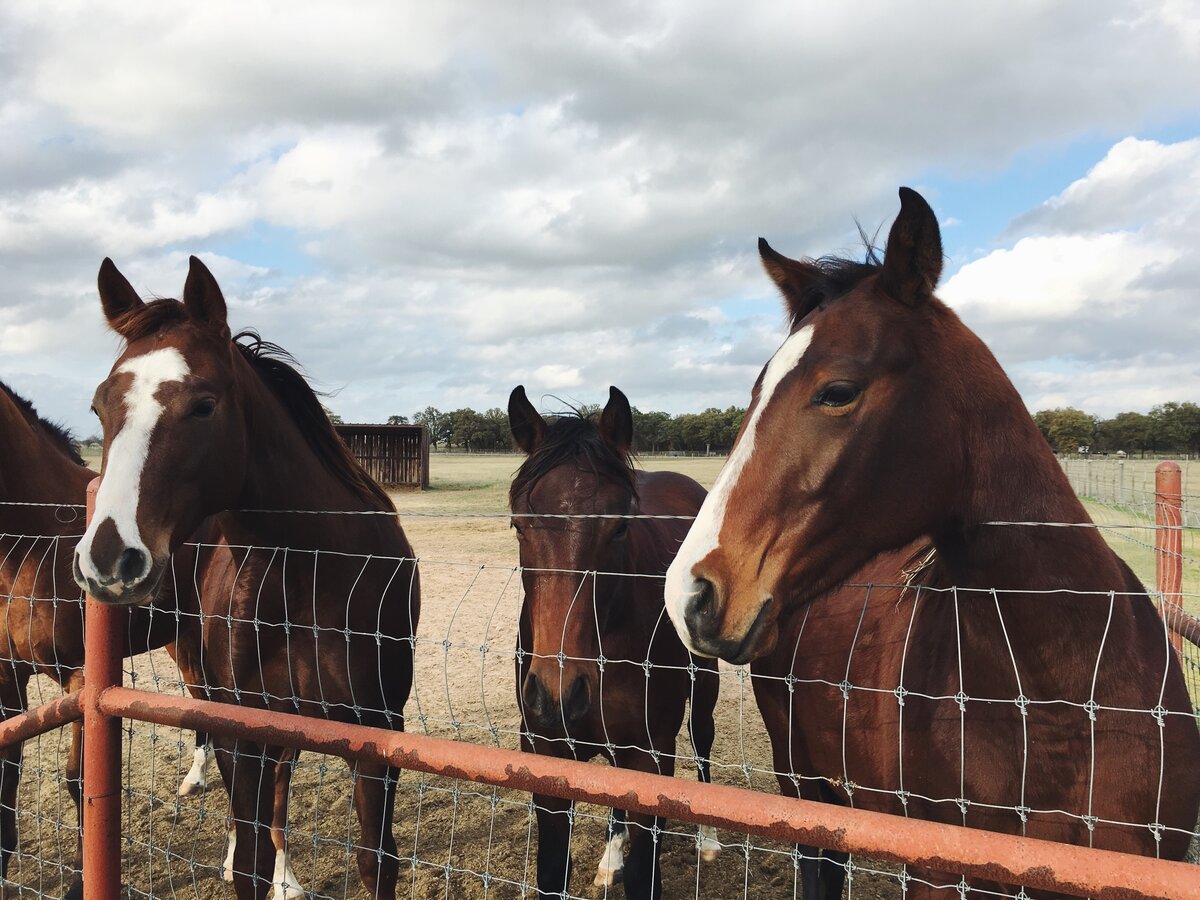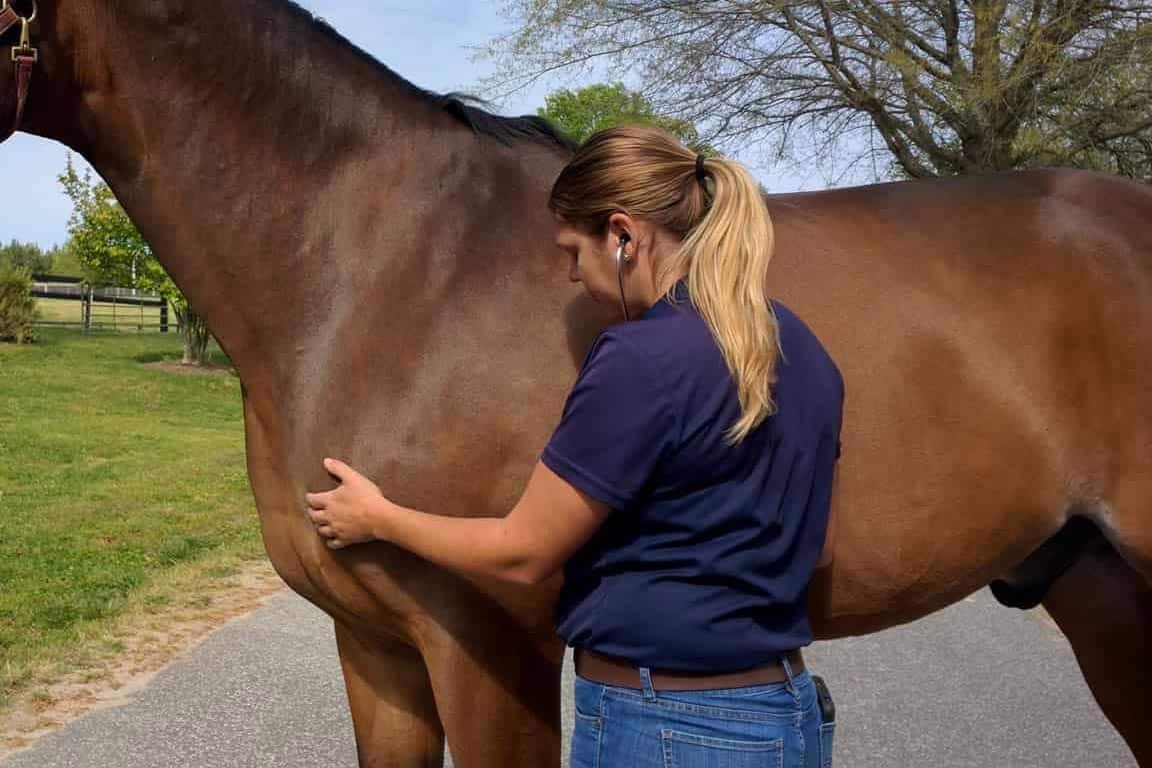The most common causes of sudden death in horses include respiratory failure, severe exercise-induced pulmonary haemorrhage (EIPH), and spinal cord injury. Other potential causes include aortic rupture or rupture of another large artery, which can lead to sudden cardiac death (SCD).
These causes can have a significant impact on a horse’s health and can result in sudden and unexpected death. Horse owners and caretakers need to be aware of these potential causes and take appropriate measures to prevent them and ensure the well-being of their horses.

Understanding Sudden Death In Horses
Sudden death in horses can be a devastating event for horse owners and caretakers. It often occurs without warning and can leave them searching for answers. While there are various causes of sudden death in horses, understanding the underlying reasons behind these fatalities can help shed some light on this tragic occurrence.
Respiratory Failure
One common cause of sudden death in horses is respiratory failure. This can occur due to a variety of respiratory conditions, such as pneumonia, pleuropneumonia, or severe asthma. When the horse’s respiratory system becomes compromised to the point of failure, it can lead to sudden death. It is important to provide appropriate veterinary care and monitor the respiratory health of horses to prevent such incidents.
Severe Exercise-induced Pulmonary Hemorrhage (each)
Severe exercise-induced pulmonary haemorrhage (EIPH) is another leading cause of sudden death in horses. EIPH is characterized by bleeding in the lungs, often occurring during or after intense exercise. The increased pressure in the pulmonary blood vessels can cause rupture and bleeding, leading to respiratory distress or sudden death. Proper conditioning and management practices, such as avoiding overexertion and providing adequate rest, can help reduce the risk of EIPH in horses.
Spinal Cord Injury
Spinal cord injuries can also result in sudden death in horses. Accidents, falls, or trauma to the neck or spine can cause severe spinal cord damage, leading to paralysis or disruption of vital bodily functions. Depending on the location and extent of the injury, horses may experience a rapid decline in health or sudden death. Ensuring a safe environment, implementing proper handling techniques, and using appropriate equipment can help prevent spinal cord injuries in horses.
Aortic Rupture Or Rupture Of Another Large Artery
Aortic rupture, or rupture of another large artery, is a less frequently observed cause of sudden cardiac death (SCD) in horses. These ruptures are usually identifiable during a postmortem examination. The sudden rupture of a major artery can result in massive internal bleeding and subsequent cardiovascular collapse, leading to sudden death. While the exact causes of these ruptures are not always clear, it is essential to maintain good cardiovascular health in horses through proper nutrition, exercise, and regular veterinary check-ups to minimize the risk of such fatal events.
In conclusion, sudden death in horses can have multiple causes, including respiratory failure, severe exercise-induced pulmonary haemorrhage, spinal cord injury, and aortic rupture or rupture of another major artery. Understanding these underlying causes can help horse owners and caretakers take preventive measures and provide appropriate care to minimize the risk of sudden death in their equine companions.
Congenital Defects As Causes Of Sudden Death
Sudden death in horses can be a devastating and tragic event for owners and caretakers. While there are various reasons why a horse may experience sudden death, one significant factor to consider is congenital defects. These are abnormalities that are present at birth and can affect the horse’s overall health and well-being. Understanding the signs and symptoms, risk factors, and prevention and management strategies of congenital defects can help horse owners take proactive measures to ensure their horse’s health and longevity.
Signs And Symptoms Of Congenital Defects
Congenital defects in horses can manifest in various ways, and owners must be aware of the potential signs and symptoms. Some common indications of congenital defects include the following:
- Poor growth and development
- Difficulty breathing
- Heart murmurs or abnormal heart sounds
- Contracted tendons
- Joint deformities
- Abnormalities of the digestive system
- Abnormal behaviour or temperament
Noticing any of these signs in a young horse should prompt immediate veterinary attention, as they may indicate an underlying congenital defect that could potentially lead to sudden death.
Risk Factors For Congenital Defects
While the exact cause of congenital defects in horses is often unknown, several risk factors may increase the likelihood of their occurrence. These include:
- Genetic predisposition
- Maternal infections or exposure to toxins during pregnancy
- Poor nutrition during pregnancy
- Exposure to certain drugs or medications
- Inbreeding or close breeding
Understanding these risk factors can aid in identifying horses that may be more susceptible to congenital defects and allow for appropriate monitoring and management.
Prevention And Management Of Congenital Defects
Preventing congenital defects in horses can be challenging, but some steps can be taken to minimize the risk. Some preventive measures include:
- Ensuring broodmares receive proper nutrition and veterinary care during pregnancy
- Avoiding exposure to potential toxins or infectious agents
- Working with knowledgeable breeders to select appropriate mates and avoid inbreeding
Additionally, early detection and management of congenital defects are crucial for the long-term health and well-being of affected horses. This may involve veterinary interventions such as surgical correction, medications, and specialized care to address specific abnormalities or complications.
By being aware of the signs and symptoms, understanding the risk factors, and implementing preventive measures and appropriate management strategies, horse owners can improve their chances of detecting and addressing congenital defects before they lead to sudden death.
Other Causes Of Sudden Death In Horses
Other causes of sudden death in horses include respiratory failure, severe exercise-induced pulmonary haemorrhage (EIPH), spinal cord injury, aortic rupture, and other congenital defects. It is important to identify and address these underlying causes to prevent sudden deaths in horses.
Sudden death in horses can occur due to various reasons, and while intoxications are commonly known to be a cause, several other factors can lead to this unfortunate event. Understanding these other causes can help horse owners and caretakers take the necessary precautions and provide appropriate care to minimize the risk of sudden death. The following are some of the other common causes:
Indigestion And Ruptures
Indigestion can sometimes lead to severe complications in horses, causing the stomach or intestine to rupture. This can be due to excessive gas buildup, intestinal blockages, or other digestive disorders. Ruptures in these organs can cause sudden death if not promptly treated.
Intoxications
Horses can be susceptible to various toxins that can be found in their environment or ingested through contaminated food or water. Toxic plants, chemicals, medications, and even certain types of mould can lead to intoxications, which can result in sudden death if not recognized and treated promptly.
Electrocution And Lightning Strike
Electrocution can occur when horses come into contact with live electrical wires or faulty electrical equipment. Additionally, lightning strikes during thunderstorms can also be fatal to horses. These sudden and powerful electrical shocks can cause severe internal injuries and immediate death.
Acute Alimentary Conditions
Acute alimentary conditions, such as colic or severe gastric ulcers, can lead to sudden death in horses. These conditions can cause severe pain, inflammation, and dysfunction in the digestive system, putting immense stress on the horse’s overall health and potentially leading to fatal complications.
Cardiac Disorders
Cardiac disorders, such as arrhythmias or heart valve problems, can cause sudden death in horses. These abnormalities can disrupt the normal functioning of the heart, leading to heart failure or other life-threatening cardiovascular events.
Internal Hemorrhage
Internal haemorrhage, whether caused by trauma or underlying medical conditions, can result in sudden death. Bleeding within the body, especially if it goes unnoticed or unaddressed, can lead to severe organ damage and ultimately fatal consequences.
Trauma
Severe trauma, such as fractures, head injuries, or severe wounds, can cause immediate death in horses. Accidents, falls, or violent encounters with other animals or objects can result in fatal injuries that are too severe to recover from.
Horse owners and caretakers must be aware of these other causes of sudden death in horses and take appropriate measures to prevent and mitigate the associated risks. Regular veterinary check-ups, proper nutrition, a safe environment, and prompt intervention in case of any health concerns are essential to maintaining the overall well-being and longevity of these magnificent creatures.

:strip_icc()/Manworkinginthehorsestable-5b89d06d46e0fb00259ae0e0.jpg)
Frequently Asked Questions For Common Causes Of Sudden Death In Horses
What Is The Number One Cause Of Death In Horses?
Colitis is the number-one cause of death in horses. Symptoms include persistent illness, difficulty recovering from injuries, behaviour changes, a lack of interest in eating, and difficulty standing up. It can lead to respiratory failure, exercise-induced pulmonary haemorrhage, spinal cord injury, and aortic rupture.
What Is The Number One Horse Killer?
Colic is the number one horse killer, causing sudden death in horses.
What Are The Signs Of A Horse Dying?
Persistent illness, inability to recover from injuries, changes in behaviour, lack of interest in eating, and difficulty standing up are signs of a horse dying.
How Can You Tell How Long A Horse Has Been Dead?
The signs of a horse’s death include rigour mortis, cloudy and shrunken eyes, bacterial gas in the intestine, and a tight and drum-like abdomen.
Conclusion
Sudden death in horses can be attributed to a variety of causes, including respiratory failure, severe exercise-induced pulmonary haemorrhage (EIPH), spinal cord injury, and aortic rupture. Horse owners and caretakers must be aware of the potential signs of a horse’s declining health, such as persistent illness, difficulty standing up, and a lack of interest in eating.
By understanding these common causes and monitoring the health of their horses, individuals can take proactive measures to prevent sudden death and ensure the well-being of their equine companions.

